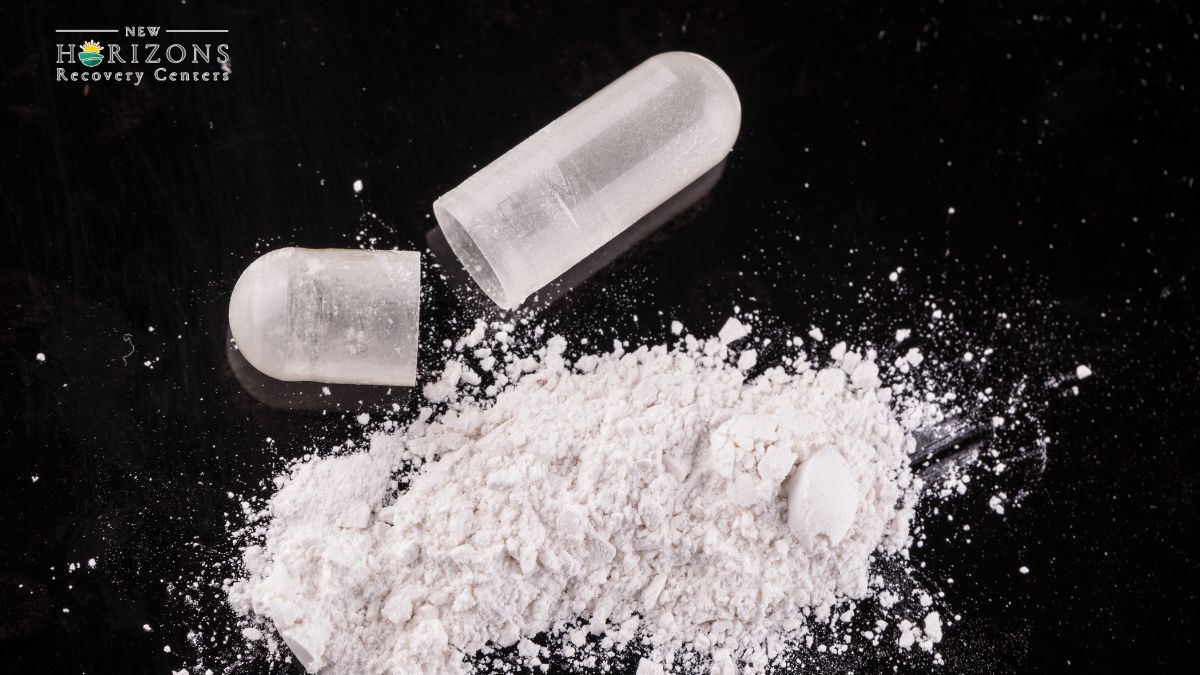Understanding DUI Statistics
When examining the impact of driving under the influence (DUI) during the holidays, it is essential to understand the statistics surrounding alcohol-impaired driving. These statistics shed light on the severity of the issue and highlight the need for increased awareness and prevention efforts.

Fatalities and Alcohol-Impaired Driving
In 2022, there were a staggering 13,524 people who lost their lives in alcohol-impaired driving traffic deaths in the United States, averaging to about 37 deaths per day. Tragically, these deaths were all preventable. Approximately 32% of all traffic crash fatalities in the United States involve drunk drivers with a Blood Alcohol Concentration (BAC) of .08 g/dL or higher. This highlights the significant role that alcohol plays in fatal crashes.
Age Groups and DUI Incidents
Analyzing the age groups most commonly involved in DUI incidents provides valuable insights into the demographics affected by alcohol-impaired driving. In 2022, the highest percentage of drunk drivers (with BACs of .08 g/dL or higher) were in the 21 to 24-year-old age group. This age group demonstrates a concerning trend in terms of alcohol-related incidents on the road.
It is important to note that men are more likely to be involved in these types of crashes, with four male drunk drivers for every female drunk driver. This disparity underscores the need to address the factors contributing to higher rates of alcohol-impaired driving among men [1].
Tragically, the impact of DUI extends beyond those directly involved. Among children aged 14 and younger killed in motor vehicle crashes, 25% were killed in drunk-driving crashes. Alarmingly, more than half of the time (57%), the child killed was in the vehicle driven by the drunk driver. These statistics highlight the devastating consequences of alcohol-impaired driving, particularly for innocent passengers.
Repeat offenders who drink and drive are a significant concern as well. Drivers with BACs of .08 g/dL or higher involved in fatal crashes were four times more likely to have prior convictions for driving while impaired than drivers with no alcohol-related convictions. Addressing repeat offenders is crucial in reducing the number of alcohol-impaired driving incidents on our roads [1].
By understanding the statistics related to DUI, we can grasp the magnitude of the problem and take proactive measures to prevent alcohol-impaired driving. Increased awareness, education, and enforcement are key in reducing the number of fatalities and injuries caused by DUI incidents during the holidays and throughout the year.
Impact of DUI on Insurance
Driving under the influence (DUI) can have significant consequences beyond legal and safety issues. One area where DUI can have a lasting impact is on insurance. Let's explore how DUI affects insurance rates and coverage.
Insurance Rates After DUI
Insurance companies typically view drivers with DUI convictions as riskier to insure. As a result, individuals who have been convicted of DUI may experience an increase in their insurance rates. The extent of the rate increase can vary depending on several factors, including the insurance provider and the specific circumstances of the DUI offense.
According to Progressive, one of the major insurance providers, a first DUI offense can result in an average rate increase of about 13%. However, it's important to note that this increase is an average, and the actual rate hike can differ based on individual circumstances.
Factors such as the time passed since the DUI, age, and driving history can also influence the rate increase. For example, a clean driving record apart from the DUI conviction may result in a lower rate increase. It's advisable to reach out to your insurance provider to understand the specific impact of a DUI on your rates.
Coverage and Consequences
In addition to rate increases, insurance coverage may be affected by a DUI conviction. Some insurance companies may refuse coverage altogether for individuals with DUI convictions due to the perceived higher risk. However, there are insurers like Progressive that accept DUI drivers, albeit with increased rates.
It's important to note that life insurance coverage can also be impacted by a DUI conviction. According to MarketWatch, individuals with DUI convictions may face premiums that are up to 200% higher compared to those with a clean driving record. Some life insurance companies may even deny coverage or place individuals with DUI convictions in higher-risk classes.
Furthermore, life insurance policies may include exclusions that result in withholding a death benefit payout if the insured individual dies while committing an illegal act, such as drunk driving. This means that the policy may not pay out in certain circumstances related to the DUI offense.
It's essential to consult with insurance professionals to understand how a DUI conviction can impact your specific insurance coverage and rates. They can provide accurate information based on your individual circumstances and help you navigate any changes or challenges that may arise.
Considering the potential financial implications of DUI on insurance, it's crucial to prioritize responsible and sober driving to safeguard not only your safety but also your insurance coverage.
DUI Awareness Campaigns
Raising awareness about the dangers of driving under the influence (DUI) is crucial in preventing alcohol-related accidents and fatalities. Various campaigns have been implemented to educate the public about the consequences of drunk driving and promote responsible behavior. Two notable campaigns in this regard are the 'Drive Sober or Get Pulled Over' campaign and holiday-specific DUI awareness campaigns.
'Drive Sober or Get Pulled Over'
The 'Drive Sober or Get Pulled Over' campaign is a national high-visibility enforcement campaign that focuses on the consequences of drunk driving. Supported by increased law enforcement, this campaign aims to deter individuals from driving under the influence. It runs throughout the year, with specific emphasis during holidays and other high-risk periods.
During the campaign, law enforcement agencies across the country intensify their efforts to identify and apprehend drunk drivers. Through increased patrols and sobriety checkpoints, they aim to discourage individuals from driving while impaired. The 'Drive Sober or Get Pulled Over' campaign has proven effective in reducing alcohol-impaired driving incidents and saving lives.
Holiday Impacts and Campaigns
Holidays often see an increase in social gatherings and celebrations where alcohol consumption is prevalent. Unfortunately, this can lead to an increase in drunk-driving incidents and fatalities. To address this issue, many DUI awareness campaigns specifically target holiday periods.
The 'Drive Sober or Get Pulled Over' campaign includes holiday-specific components to educate people about the dangers of driving under the influence during these festive times. Law enforcement agencies increase their presence on the roads, emphasizing the importance of sober driving and the potential consequences of drunk driving.
To spread awareness and engage the public, the campaign provides sample social media posts for platforms like Facebook, Twitter, and Instagram. These posts aim to reach a wide audience and encourage responsible behavior during the winter holidays. Additionally, sample news releases are available for media outreach, enabling news outlets to highlight the campaign and its objectives.
In support of the 'Drive Sober or Get Pulled Over' campaign during the winter holidays, multiple ad options in English and Spanish are available. These ads serve as visual reminders and reinforce the message of responsible alcohol consumption and the dangers of drunk driving.
By implementing these DUI awareness campaigns, particularly during the holiday season, organizations and law enforcement agencies strive to reduce alcohol-related accidents and promote safe driving habits. These efforts contribute to creating safer roads and protecting individuals from the devastating consequences of driving under the influence.
Life Insurance Considerations
When it comes to obtaining life insurance coverage, it's important to understand the impact that a DUI (Driving Under the Influence) conviction can have on your rates and coverage options. Life insurance companies take various factors into account during the underwriting process, including age, health, lifestyle, and driving history, such as DUI convictions or arrests [4].
Impact of DUI on Life Insurance
Having a DUI conviction on your record can significantly affect your life insurance rates. In fact, individuals with DUI convictions may see their rates increase by up to 200% compared to those with a clean driving record. These higher rates reflect the increased risk that insurance companies associate with individuals who have a history of alcohol-related offenses.
The impact of a DUI on life insurance rates can also depend on the number of DUI convictions or arrests an individual has. Multiple DUIs may result in even higher rates, making it more challenging to find affordable coverage. In some cases, individuals with a history of multiple DUIs may find it difficult to obtain coverage at all, especially for whole life policies that tend to be more expensive [4].
Underwriting and Coverage
Life insurance companies take a comprehensive look at an individual's driving record during the underwriting process. While the specific timeframe may vary, insurers typically review the driving history over at least three to five years. However, they can also uncover older DUI convictions. If a DUI occurred within the past five years, underwriters may even look further back to check for multiple convictions or arrests.
Individuals with a DUI conviction may face additional scrutiny during underwriting. Life insurance companies may place them in higher-risk classes or deny coverage altogether, especially if there are other factors involved, such as a suspended license, probation, or pending criminal charges. It's essential to disclose any DUI convictions during the application process to ensure transparency and accurate assessment of risk.
Furthermore, it's important to note that life insurance policies may include exclusions for deaths that occur while committing illegal acts, such as drunk driving. These exclusions can result in the withholding of a death benefit payout under certain circumstances. It's crucial to carefully review the terms and conditions of your policy and understand any exclusions that may apply.
Navigating the life insurance landscape after a DUI conviction can be challenging. To secure the best coverage options at a reasonable rate, it's advisable to work with an experienced insurance agent who can guide you through the process and help you find the most suitable policy based on your individual circumstances.
Remember, it's never too late to make positive changes. Taking steps to address any underlying issues and demonstrating responsible behavior can help improve your insurability over time.
DUI Roadblocks and Prevention
DUI roadblocks, also known as DUI checkpoints, play a crucial role in preventing drunk driving and ensuring road safety, particularly during the holiday season. These checkpoints are areas where law enforcement officers are stationed to check drivers for signs of intoxication and impairment. By setting up these checkpoints, law enforcement agencies aim to deter individuals from driving under the influence and identify potentially dangerous drivers on the road.
Purpose and Effectiveness
The primary purpose of DUI roadblocks is to identify and apprehend drivers who may be operating a vehicle while impaired. Officers stationed at these checkpoints are authorized to check drivers for signs of impairment, conduct field sobriety tests, and request a breath test if they suspect a driver is intoxicated. By implementing these roadblocks, law enforcement agencies aim to:
- Deter individuals from driving under the influence: The presence of DUI roadblocks serves as a visible reminder of the consequences associated with drunk driving. The fear of being caught can discourage individuals from getting behind the wheel while impaired.
- Identify and remove dangerous drivers from the road: DUI roadblocks allow officers to identify drivers who may be under the influence of alcohol or drugs. By conducting field sobriety tests and breath tests, officers can assess a driver's impairment level and take appropriate action to ensure road safety.
DUI roadblocks have been shown to be an effective tool in preventing drunk driving incidents and reducing the number of impaired drivers on the road. The heightened enforcement during holidays and weekends, when impaired driving tends to increase, helps to protect the public from the dangers posed by intoxicated drivers.
Ensuring Road Safety
The implementation of DUI roadblocks during holiday periods and other high-risk times plays a significant role in ensuring road safety. By conducting these checkpoints, law enforcement agencies aim to:
- Raise awareness about the dangers of drunk driving: The presence of DUI roadblocks serves as a reminder to drivers about the potential consequences of driving under the influence. These checkpoints are part of broader DUI awareness campaigns that aim to educate the public about the risks associated with impaired driving.
- Encourage responsible behavior and alternative transportation options: DUI roadblocks serve as a proactive measure to encourage individuals to make responsible decisions when it comes to alcohol consumption and transportation. It is advised to designate a sober driver, take a taxi, or use ride-sharing services like Uber or Lyft to avoid driving under the influence [5].
By implementing DUI roadblocks and promoting responsible behavior, law enforcement agencies aim to reduce the number of alcohol-related accidents, injuries, and fatalities on the roads. These checkpoints contribute to a safer driving environment and help protect both drivers and pedestrians from the dangers of impaired driving.
To learn more about DUI awareness campaigns and their impact on road safety, continue reading our article on 'Drive Sober or Get Pulled Over' and the associated holiday impacts.
Alternatives to Driving Under the Influence
When it comes to ensuring road safety and avoiding the risks associated with driving under the influence (DUI), it's crucial to consider alternative options. By choosing designated drivers and utilizing rideshare services like Uber or Lyft, or even installing ignition interlock devices, individuals can make responsible decisions that prioritize their safety and the safety of others.
Designated Drivers and Rideshare Services
One of the most effective alternatives to driving under the influence is to designate a sober driver. By selecting someone who abstains from alcohol or drugs, individuals can rely on this person to drive them home safely. Planning ahead and designating a sober driver before heading out for a night of festivities is a proactive way to prevent DUI incidents.
Alternatively, rideshare services such as Uber or Lyft offer convenient and reliable transportation options. These platforms provide on-demand rides, allowing individuals to travel safely to their destinations without the need to operate a vehicle. Utilizing rideshare services during the holiday season is particularly important, as it can help reduce the number of DUI incidents on the road.
Ignition Interlock Devices
For individuals who have been convicted of a DUI and want to regain their driving privileges, ignition interlock devices (IIDs) are a viable option. These devices, installed in a vehicle's ignition system, require the driver to provide a breath sample before starting the vehicle. If the breath sample indicates the presence of alcohol above a certain limit, the ignition remains locked, preventing the vehicle from starting.
Ignition interlock devices are effective deterrents against driving under the influence. They promote responsible behavior by ensuring that individuals cannot operate their vehicles if they have consumed alcohol. Organizations like Smart Start Inc. offer quick and easy installation appointments for those who have been arrested for a DUI and require an ignition interlock device.
By utilizing designated drivers, rideshare services, or installing ignition interlock devices, individuals can make responsible choices that contribute to road safety and prevent DUI incidents. These alternatives provide peace of mind for both the individual and others on the road, helping to reduce the risks associated with impaired driving.
Remember, even one drink can impair thinking, reasoning, and muscle coordination, significantly affecting driving abilities. It is essential to prioritize safety and choose alternative transportation methods to avoid driving under the influence of alcohol or drugs. By making responsible decisions, individuals can protect themselves and others from the dangers of DUI.
References
[2]: https://www.trafficsafetymarketing.gov
[3]: https://www.nhtsa.gov/campaign






-ink.jpeg)
